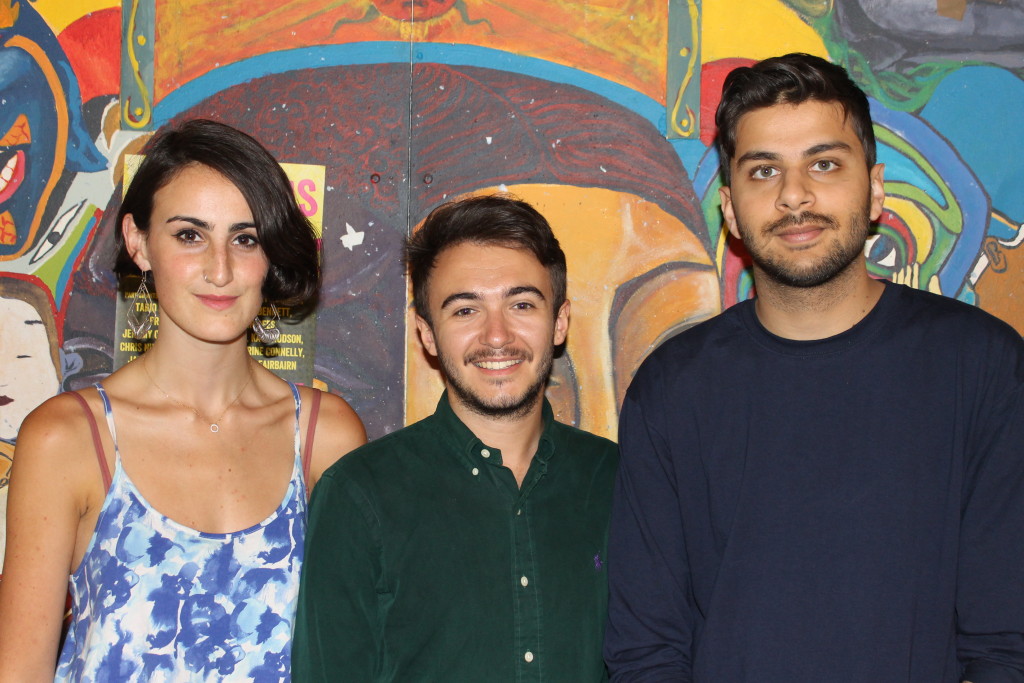Mel Plant, BA Arabic and Turkish
The Students’ Union have refused to comply with a secret working group set up by university administration to explore the implementation of the Prevent strategy within SOAS. As of the 11th of September, the university’s official Prevent strategy claims that SOAS lacks ‘any guidance documents for staff relating to the Prevent statutory duty arising from the CTS Act’, however it appears such guidance documents may be in the works within the scope of the working group.The controversial strategy, now bolstered by the Counter-Terrorism and Security Act which was passed this year, aims to crackdown on the advance of ‘non-violent extremism’ within the UK. Specifically, the passing of the CTS Act means that employees of all educational institutions, ranging from primary schools to universities, are also obliged to be complicit in protecting against the development of so-called ‘non-violent extremism’. The strategy has been widely criticised as Islamophobic, with the Students’ Union co-presidents saying that the ‘intention is for this to target Muslims and people of colour’.

Under the CTS Act, higher education institutions such as SOAS have a duty to ‘prevent people from being drawn into terrorism’. Though the final act includes some reservations over the right of universities to freedom of speech within their boundaries, how far freedom of speech is allowed to stretch has been kept ambiguous, often with the impetus placed upon professors or other employees to report students or their colleagues for suspicious behaviour. The duties outlined in Prevent Duty Guidance: for higher education institutions in England and Wales specify that events with external speakers who could possibly radicalise students should be regulated, but also that all staff, including security, should be trained to watch for suspicious changes in the behaviour of students.
A new duty guideline released by the PM’s Extremism Taskforce on the 17th of September and due to come into force on the 21st, with Universities Minister Jo Johnson criticising the National Union of Students for their ‘overt opposition to the Prevent programme’, implying that the NUS has shirked its ‘legal duty’. The press release for the guideline goes on to specifically target SOAS for hosting many of the 70 events in 2014 that the government pinpoints as having ‘promoted rhetoric that aimed to undermine core British values’, making clear that continued failure to comply with Prevent duties could mean the implementation of a court order against the university. Such threats have led the Students’ Union to decide to release a ‘canary statement’ each month on its website, to inform students whether or not it has ‘disclosed or been forced to disclose information with CONTEST, or related programmes including PREVENT and CHANNEL’.
The Students’ Union have decided to withdraw from SOAS’ working group discussing how to implement Prevent duties, criticising it as an ‘Islamophobic programme which poses a fundamental threat to academic freedom’ through which nothing can be achieved. The co-presidents went on to criticise Prevent further, claiming that its ‘broad’ description of ‘non-violent extremism’ could be stretched to include almost anyone. This ‘broad’ description includes such qualifiers as branding a person with a ‘desire for political or moral change’ or a ‘need for identity, meaning and belonging’ as in danger of radicalisation on campus – terminology which the Students’ Union has branded ‘menacingly vague’, saying that they could be applied to any SOAS student. Ultimately, the Students’ Union made the decision to withdraw from the working group out of fear of demonising Muslim and BME students, and undermining academic freedom and the ‘relationship of trust between institutions and their staff and students’.
Laura Gibbs, SOAS Registrar, asked that the Students’ Union ‘participate in [the Prevent] process to help ensure that we meet our obligations whilst continuing to support all our students and staff and uphold the core values of the school’. She noted that while SOAS already has a ‘robust code of practice for events held on campus’, through which it works with the Students’ Union, the school has now inherited a duty to adhere to Prevent obligations which are coming into force this September. When asked whether the school feels there is a conflict between freedom of speech or academic freedom and Prevent’s strategies to tackle ‘non-violent extremism’, Gibbs responded that ‘providing a space where controversial subjects can be discussed and challenged is essential’ to SOAS, and that the school does not believe that ‘this is a matter of choosing either to take steps to tackle violent extremism or to promote freedom of speech’. In short, the SOAS establishment believes that we must and can do both: support freedom of speech and the pursuit of knowledge within the university, and tackle extremism and radicalisation on campus, a belief that seems at fundamental disagreement with that of the Students’ Union.
